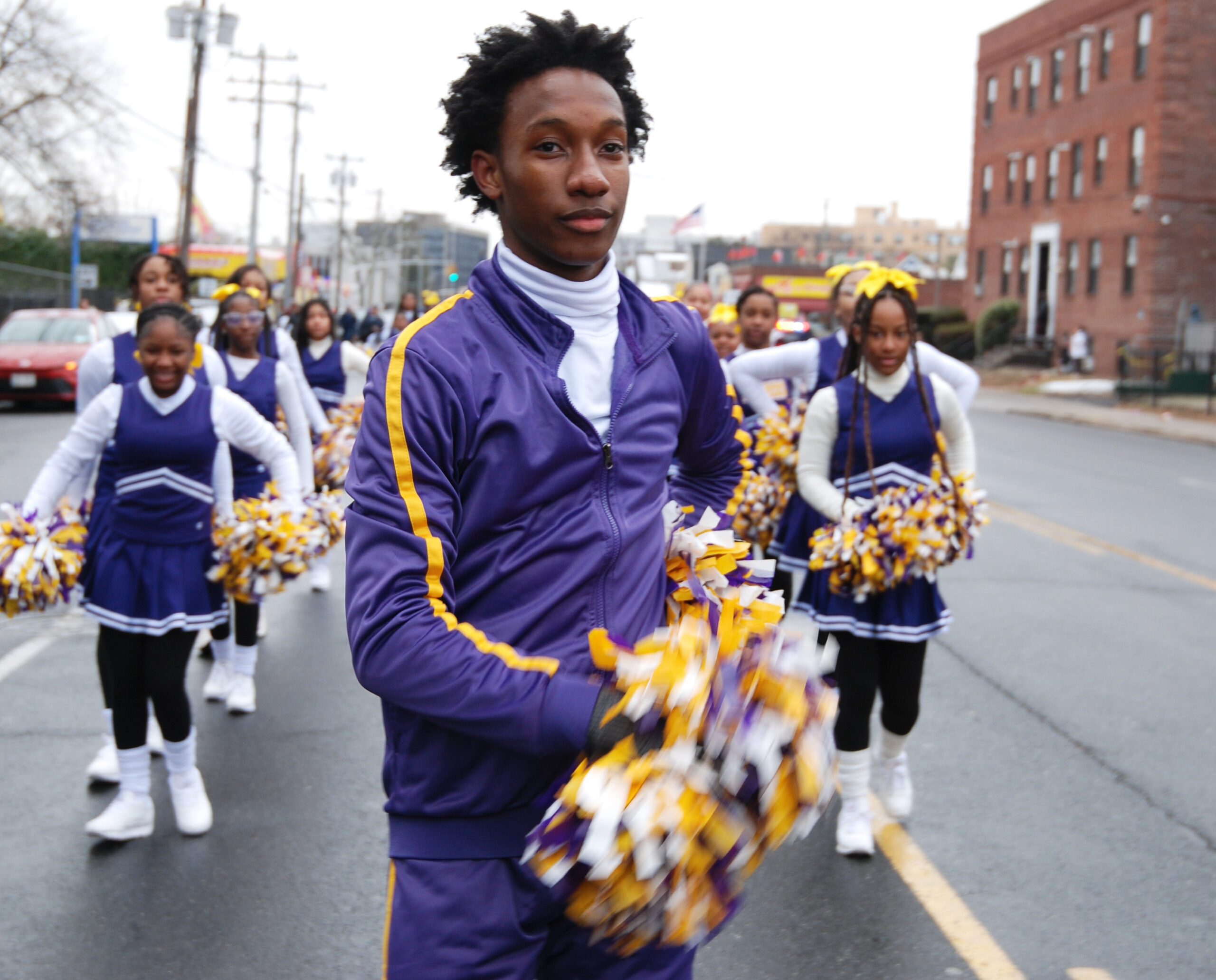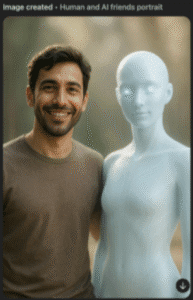By Scott Brinton
Dressed in a dark purple skirt suit, her hands flowing excitedly and her voice booming through the Hofstra University Student Center on Saturday, Dr. LaQuetta Solomon, clinical psychotherapist and emotional intelligence assessor, declared, “Our existence today is the dream realized. It’s the dream realized that I’m standing here speaking to you.”
The dream that Solomon was referring to was Dr. Martin Luther King Jr.’s vision for America, the hope and belief that people of all races and creeds would one day live as one, with equal opportunity for all.
Solomon served as the keynote speaker for “Moving Forward: The Dream Realized,” a celebration of Dr. King’s life and work held Saturday in remembrance of his upcoming birthday, Jan. 15. The four-hour event, a collaboration between the Village of Hempstead and Hofstra University, included a parade from Hempstead Village Hall to Hofstra’s North Campus and a cultural program that featured song and dance performed by students from the Academy Charter School and Hempstead High School, as well as the Youth and Teens Dance Company in Hempstead.
MLK Day, a federal holiday, is marked annually on the third Monday of January. This year, it falls on Jan. 20, Inauguration Day.

Other participants in the celebration included Aviation High School in Long Island City, the United People’s Organization, Uniondale-Hempstead Girl Scout Troop 1570 and the Hofstra wrestling team, among others.
This was the 32nd year that a MLK Day parade has been held in Hempstead, and the third year that Hempstead Village and Hofstra University have teamed up to celebrate Dr. King. Born in Atlanta in 1929, the reverend would have been 96 this year.
Dr. Laurie Hamilton, an educational leader in the Hempstead School District, served as the host and emcee for Saturday’s cultural celebration. The day was intended, she said, to honor Dr. King’s legacy.

Solomon’s 28-minute talk was one part informational, one part inspirational. “It’s the dream realized that we have so many generations here coming together, learning how to work with one another, building community,” she said.
Solomon spoke at length about the importance of mentorship of younger generations. “It’s about passing back that baton…” she said. “It’s about you pausing to mentor those coming behind you. This is what we’re talking about when we’re talking about the dream.”
Dr. King’s hope-filled dream, Solomon said, was a “divine call to justice” born of “the collective pain of our people.”
Dr. King is closely connected with Hofstra, having delivered the 1965 commencement address and received an honorary doctorate from the university—only one year after he was awarded the Nobel Peace Prize and three years before his assassination in Memphis, Tenn.
At the time, the nation was fraught with anxiety and fear over nuclear showdowns with the Soviet Union and escalation of the Vietnam War. “We must find some alternative to war and violence…” King told the class of 1965. “No nation can win a world war. It is no longer the choice between violence and non-violence. It is either non-violence or non-existence . . . And so we must work in every nation and every land to get rid of war.”
Current Hofstra President Dr. Susan Poser, who served as a parade grand marshal with Dr. Jacqueline Gates, senior pastor of the Miracle Christian Center in Hempstead, referred to King’s speech at the university in delivering her own address at this year’s MLK Day celebration.
Poser spoke of the importance of engaging with the community surrounding Hofstra. She noted that Hofstra’s new strategic plan, a 10-year project to guide the university through 2035 (Hofstra’s 100th anniversary), includes a commitment to increase community engagement, not only through service projects but also within academic courses.

“We understand the importance of place and the responsibility of the university as a member of this community to build relationships through learning from the community as much as providing services to the community,” Poser said.

Increasing representation of people of color throughout Hofstra is central to building a more diverse and equitable university community, Poser said, noting that 61% of incoming students this past fall identified as people of color, and 35% were first-generation students. As well, she said, 45% of new faculty hires were professors and instructors of color.
“It is a great day in the Village of Hempstead . . .” said Hempstead Mayor Waylyn Hobbs Jr., referring to the MLK Day celebration. “Let us remember to keep the dream alive. There are so many that want us to be violent, want us to be separated. United we stand, divided we fall.”

The day ended with a panel talk with three local high school students — Ceara Bentley, Amy Anna Henderson and Corie-Ann Hutchinson, who discussed the message and meaning of King’s dream and his approach to activism in today’s society. Dr. Ibraheem Karaye, Hofstra professor of population health and a physician-epidemiologist, led the conversation.
Henderson, an Academy Charter School senior, said King’s non-violent philosophy “represents not only in everyday interactions but particularly in the future of the younger generation . . . His philosophy particularly touches on the fact that it’s not about retribution but rather restoration.”
Hutchinson, an Academy Charter School junior, called Dr. King’s philosophy “progressive,” saying, “He believed in non-violence, in the philosophy that everything should be equal, and everyone should have equal opportunities . . . Students should have equal opportunities regardless of their race or the organizations they [are] aligned with.”
Bentley, an Academy Charter School sophomore, said peaceful protests will remain “vital” in the current era, particularly given that hate speech is on the rise on social media. King firmly believed that “hate cannot be driven out by hate,” Bentley said. Rather, only love can drive out hate.





Scott Brinton is an assistant professor of journalism, media studies and public relations at Hofstra University.







